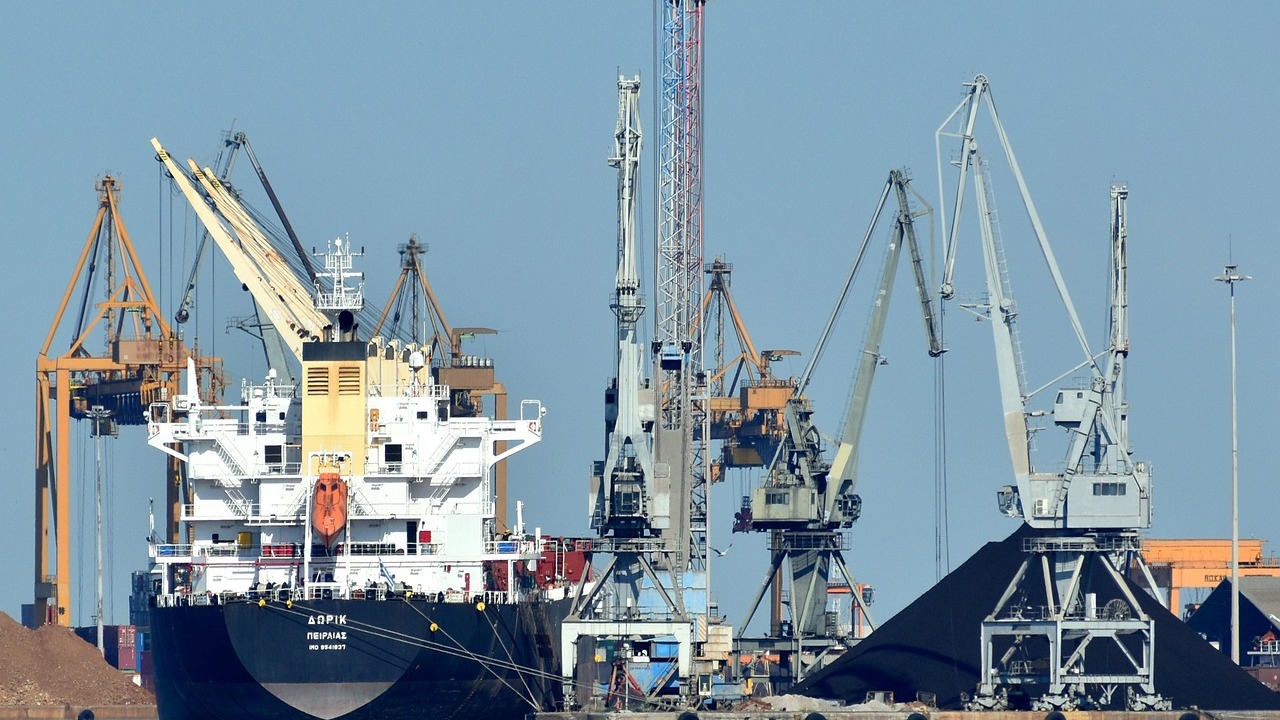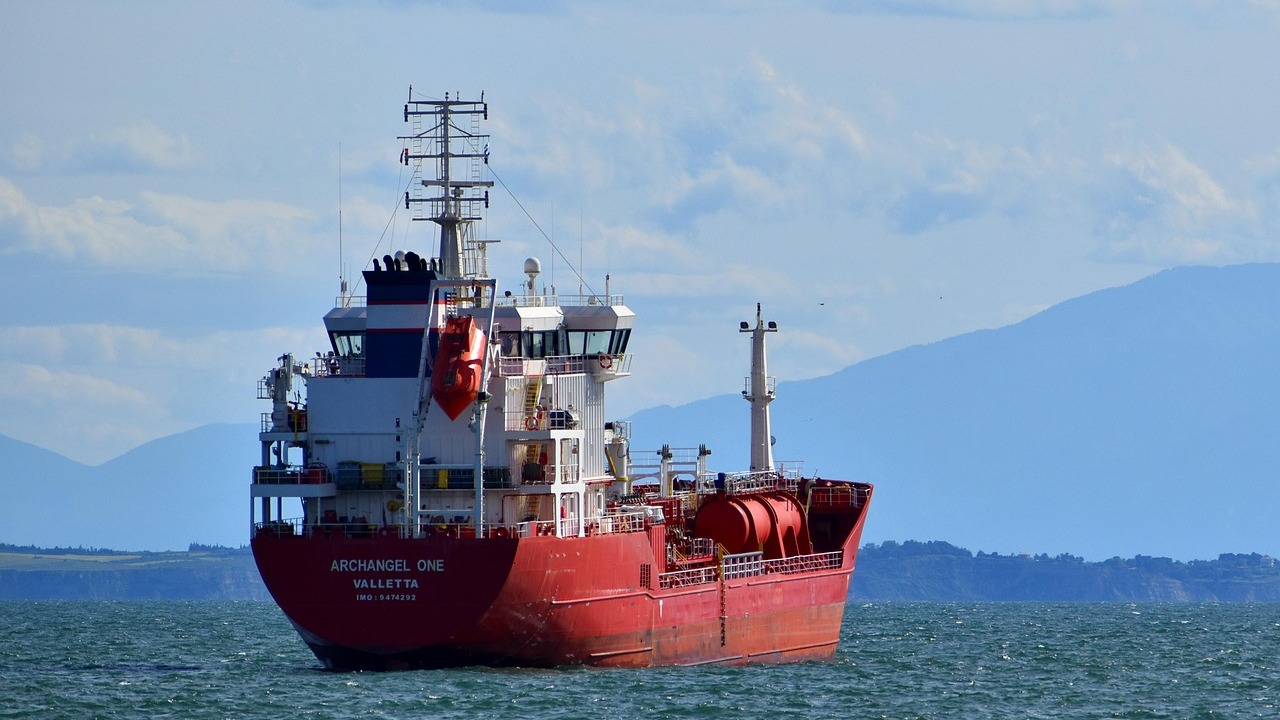Did you know that over 60% of the world’s economy relies on global trade ? Dive into the global trade review and discover how opinions, strategy, and insight can transform your business outlook. Global Trade Review: Why Every Business Leader Needs Trade Review Insights In today's dynamic market, the global trade review is no longer just an industry buzzword. It represents a vital practice for business leaders eager to adapt and thrive as international trade evolves. A comprehensive trade review uncovers emerging trends, exposes risks, and highlights new business models. Leaders who monitor trade review insights consistently outperform peers, nimbly managing challenges such as supply chain bottlenecks, trade finance complications, and regulatory hurdles before they spiral out of control. Consider how trade reviews inform strategic pivots in real-world contexts. For example, when COVID-19 disrupted global logistics, those armed with trade finance and supply chain reviews proactively re-routed shipments and restructured working capital faster than competitors. These reviews provided actionable intelligence—not just data, but context and expert analyses that translated into results. Whether you are involved in global manufacturing, technology exports, or service provider markets, reviewing international trade insights is essential for maintaining a competitive edge and resilient business approach in 2024 and beyond. Understanding the Global Trade Review Landscape The global trade review landscape is multifaceted, encompassing everything from first-hand reporting in publications like GTR Magazine to in-depth analyses from law firms and financial institutions. Both large corporations and small businesses benefit from reviewing trends such as digitalization in trade finance, working capital optimization, and supply chain finance innovations. Importantly, GTR News and similar outlets serve not only as a shop of news but as vital partners in helping companies and individuals involved in global commerce stay informed and responsive. What sets the global trade review apart is its networked ecosystem. Not only does it include traditional publishing and events companies, but also service providers, events and services specialists, and influencers cited in GTR directories and hillgate place rosters. Leading trade experts, known as GTR leaders, share strategies and case studies, fueling informed conversations and decision-making across finance markets. The review process connects all the dots—from policy changes to practical implementation. Practical Examples: How Trade Review Shapes Real-World Trade Finance Decisions To illustrate the tangible impact of the trade review , consider how companies have harnessed insight to transform working capital strategies. For instance, a multinational electronics giant relied on leading trade review platforms to assess the viability of pivoting manufacturing hubs amid pandemic-driven disruptions. The result? Streamlined operations, reduced risks, and improved liquidity. Through the integration of data from GTR Magazine and supply chain finance dashboards, decision-makers pinpointed bottlenecks, negotiated better financing terms, and strengthened stakeholder trust. Another practical example involves law firms acting as advisors for businesses aiming to enter new finance markets. By using the latest global trade review research, they crafted tailored legal strategies addressing compliance, ESG (Environmental, Social, and Governance) mandates, and tariff changes. These approaches did more than just tick boxes—they built robust frameworks that kept their clients ahead in the global trade game. Reading this article, you will learn: Critical trends in global trade review The truth behind trade finance and working capital issues The real impact of supply chain shifts on international trade Expert opinions on global trade and trade review strategies The Evolution of Global Trade: Unpacking the Global Trade Review Trade Review: Historical Context and Modern Relevance The trade review tradition has deep roots, going back centuries to when merchant guilds and trading posts documented goods, routes, and regulations. The initial purpose was to safeguard interests and share intelligence. Today, the spirit remains the same, but the mechanisms are more sophisticated. The modern global trade review leverages analytics, blockchain, and instant communication channels, helping businesses anticipate shocks and grasp opportunities that once took months—or years—to detect. This evolution has expanded the audience. Global trade reviews are now invaluable not only to shipping magnates but also to tech startups, service providers, chain finance innovators, and even companies and individuals involved in global trade at the most granular level. The review's modern relevance is underscored by independent publishing and events companies like GTR Magazine, which amplify the reach and real-time nature of trade intelligence to a broader, more engaged business community. From Print to Digital: How GTR Magazine Defines Trade Review Excellence GTR Magazine , an industry benchmark, has ushered in a digital revolution in international trade review. What began as a print publication—serving a niche but influential readership—has transformed into a dynamic digital platform, delivering GTR news, deep-dive reports, and interactive directories. The move from physical pages to digital dashboards means reviews arrive with immediacy, precision, and global reach. This evolution is a vital shift for service providers and law firms seeking actionable, source-verified data to support fast-paced decision-making. GTR Magazine’s adoption of digital innovation hasn't merely improved access. It has also raised the bar for what business leaders can expect from a trade review. Industry events, finance markets roundtables, and live Q&A sessions now inform the review process, empowering leaders in trade and individuals involved in global commerce to exchange firsthand knowledge and best practices in real time. Opinion: The Untold Truths About Trade Finance within Global Trade Review Trade Finance Mechanisms in the Global Trade Review Era While trade finance has always underpinned global commerce, today’s global trade review era demands finely tuned mechanisms to navigate complexity. Traditional letters of credit and documentary collections are now supported by AI-driven risk assessment, blockchain-powered documentation, and real-time supply chain finance options. These changes provide immense benefits for companies and individuals involved in global trade, especially when paired with ongoing review and analysis from leading trade reviewers and gtr leaders. However, the growing sophistication comes with its own set of challenges. Service providers and law firms face evolving compliance standards, and working capital strategies are in a constant state of adjustment to accommodate regulatory unpredictability. A strong global trade review provides clarity, benchmarking new solutions against established best practices and identifying emerging trends that may disrupt tomorrow’s finance markets. Impact of Global Trade Review on Working Capital Strategies Your working capital —the cash, inventory, and liquid assets that keep a business running—can be dramatically affected by global trade trends. Reviews from GTR Magazine and other platforms help dissect not only the risks but the opportunities in adjusting supply chain finance and capital management. For example, during inflationary periods or sudden regulatory shifts, companies armed with a robust global trade review can forecast cash flow swings and adapt their procurement and payment cycles accordingly. In practical terms, this means businesses that stay current on global trade reviews make better use of their credit lines, negotiate more favorable terms with suppliers, and avoid supply chain disruptions. The benefit is not just theoretical—it turns information into revenue-boosting, cost-saving strategies that deliver measurable results on the bottom line. Comparison: Leading Global Trade Review Platforms & Trade Finance Trends Platform Coverage Key Offerings Strengths GTR Magazine Global News, directory, live events Real-time insight, high credibility Law Firm Trade Reports Regional/Global Legal analysis, regulatory updates Compliance, risk management Service Provider Platforms Industry-wide Custom data feeds, benchmarking Depth of data, tailored advice Independent Events Companies International Workshops, finance trends panels Peer networking, trendspotting International Trade and Supply Chain: Intersections in the Global Trade Review Supply Chain Disruptions and Their Review in Trade Media Recent years have spotlighted how supply chain disruptions propel global trade review to the forefront of risk management. Trade media outlets, especially GTR News and related events companies, report extensively on patterns from shipping delays to geopolitical chokepoints. These reviews do more than just chronicle problems—they offer frameworks for proactive response. When companies engage with these resources, they become more adept at supply chain monitoring and scenario planning, translating knowledge into operational resilience. Advanced reporting by review platforms helps service providers and global exporters track issues in real time, whether due to regional conflicts, regulatory changes, or climate-driven challenges. A well-curated supply chain review means that your business can pivot quickly, reroute shipments, or switch suppliers based on the most current information—long before a laggier competitor takes notice. International Trade Changes and Their Effects on Trade Finance Changes in international trade directly impact the strategies used in trade finance. Political turbulence, new trade agreements, or regulatory shifts are analyzed in real time by reviewers and published in industry-leading platforms such as GTR Magazine and law firm whitepapers. These insights allow finance departments to update risk models, revise forecast scenarios, and strengthen compliance while also identifying new market gaps. Layering these reviews into regular strategic meetings ensures that companies and individuals involved in global commerce aren’t blindsided by new tariffs, supply chain interruptions, or market demands. Case studies published by gtr leaders in trade demonstrate how early adoption of such insights leads to greater market agility, improved financing strategies, and even market expansion during turbulent times. “Trade review is where strategy meets reality—understanding it elevates your entire approach to global business.” Opinion: Are Trade Reviews and Global Trade Reviews Keeping Pace with Industry Needs? Pros and Cons: Navigating Global Trade Review Challenges While global trade reviews provide invaluable guidance, they also present unique challenges. The pros are clear: reviews offer data-rich intelligence, direct access to expert opinion leaders, and a venue to track leading trade trends. When done right, they foster adaptability—as seen in companies leveraging insights to design agile international trade strategies. On the flip side, there are gaps—particularly concerning speed, bias, and inclusivity. Not all reviews are created equal; some lag in updating or provide narrow perspectives skewed toward specific sectors or regions. It is vital for businesses, law firms, and service providers to cross-reference multiple sources, attend trade finance events, and consult a broad array of gtr news and publishing channels to develop a well-rounded global trade review. How GTR Magazine Remains Relevant in International Trade Reporting GTR Magazine maintains its relevance by embracing technology, prioritizing real-time updates, and hosting high-impact events and services. As a publishing and events company, it’s not just a passive news shop—it actively shapes conversation in the global trade review landscape. Its direct engagement with gtr leaders, service providers, and finance market authorities ensures that its reporting represents a comprehensive view, driving ongoing adaptation among companies and individuals involved in global commerce. Regular contributions from hillgate place experts, independent publishing, and events coverage fuel a pipeline of timely, actionable intelligence. GTR Magazine’s evolving digital footprint, interactive directories, and commitment to data integrity make it a cornerstone for anyone seeking to benchmark their place in international trade. Leverage data-rich trade review sources Focus on proactive supply chain monitoring Regularly review trade finance analysis Engage with opinion leaders from GTR Magazine Prioritize adaptability in your international trade strategy Case Studies: Real Business Transformation Sparked by Global Trade Review How Trade Review Insights Foster Supply Chain Resilience One leading multinational, facing pandemic-related disruptions, leaned heavily on trade review intelligence. By analyzing data streams from GTR News and independent publishing events, it identified early warning signals in the supply chain—shifting production processes, diversifying logistics partners, and adopting technology for real-time status tracking. Within six months, the company had slashed shipment delays by 40% and improved supplier reliability, all traceable to actionable trade review insight. This proactive approach underscores the value of reviews: not just in understanding global trade, but in building core resilience. Another case involved a regional retailer preparing for Brexit. The retailer’s law firm used the latest international trade review, including gtr leaders’ commentary and finance market projections, to anticipate regulatory and customs changes. By revising contracts, renegotiating working capital terms, and partnering with new service providers, the retailer dodged costly disruptions that plagued less-prepared competitors. Trade Finance Success Stories from Major International Trade Players Major global exporters and manufacturers frequently cite the trade finance direction from global trade review sources as critical to their transformation. For example, a technology distributor adopted chain finance recommendations from GTR Magazine to optimize capital flows, elevating their DSO (days sales outstanding) and securing longer payment terms while reducing default risk. This single decision improved liquidity, strengthened investor confidence, and positioned the distributor as a preferred partner across multiple markets. Similarly, service providers to companies and individuals involved in global trade use these reviews to refine risk models, diversify funding channels, and remain nimble in volatile finance markets. These stories highlight why ongoing trade review isn’t a luxury—it’s an operational necessity. Emerging Trends: The Future of Global Trade Review Technological Innovations Shaping Global Trade and Finance The next decade promises radical advancements in global trade review . Technologies such as artificial intelligence, blockchain, and machine learning are already revolutionizing international trade, making due diligence faster, more accurate, and less prone to fraud. Real-time risk scoring, predictive analytics for supply chain disruptions, and secure digital documentation replace manual audits and paperwork-heavy processes. These advancements democratize access, enabling service providers of every size to play a larger role in global commerce. Tomorrow’s independent publishing and events companies will offer even richer data streams, smarter market predictions, and interactive visualizations to support agile, data-driven decisions. Predictions: How Global Trade Review Will Impact International Trade by 2030 By 2030, expect global trade reviews to be fully integrated into everyday business platforms, from procurement tools to executive dashboards. The blurring lines between digital trade, ESG compliance, and real-time working capital management signal an era in which trade review is deeply embedded across all business functions. Peer networking, driven by events and services and curated by platforms such as GTR Magazine, will accelerate industry-wide innovation and knowledge exchange. International trade will be defined not by who has access to information, but by who can interpret the right reviews, activate the best strategies, and build resilience in an ever-evolving global landscape. People Also Ask: Is Global Trade Good or Bad? Analyzing the Pros and Cons in the Context of the Global Trade Review Global trade brings undeniable benefits: diversified product choices, economic growth, and access to new markets. However, it also introduces potential pitfalls—such as supply chain vulnerabilities, regulatory uncertainty, and periodic market volatility. Through the lens of the global trade review , business leaders can weigh these pros and cons with objectivity, reviewing not only the numbers but the underlying drivers in each geography and sector. Reviews from leading trade analysts, events companies, and law firms often show that fair and equitable international trade fuels sustainable advancement. But they also caution against one-size-fits-all assumptions. Each business, region, and sector must analyze how global trade interacts with local realities, using ongoing review to craft a strategy that maximizes upsides while safeguarding against risks. Balanced Perspective: Case Studies and Data from Trade Review Publications Reviewing case studies from GTR Magazine and independent publishing forums provides a clearer, data-driven picture of the global trade landscape. For instance, the rise of ESG-focused trade finance and supply chain inclusivity has spurred improvements in fairness, transparency, and access—yet persistent gaps remain, especially for smaller service providers and companies in emerging markets. Trade review publications, by spotlighting both success stories and cautionary tales, equip business leaders to navigate a nuanced international environment where being informed is being empowered. People Also Ask: Is Global Trader Legit? Evaluating Legitimacy: What the Global Trade Review Community Says The legitimacy of a Global Trader or any service provider is best assessed through the lens of industry-recognized trade reviews and directories. Trusted platforms like GTR Directory and independent law firm analyses aggregate peer reviews, compliance records, and verification audits. Companies and individuals involved in international trade should always check credentials with authoritative review bodies and look for signals like event participation, finance market endorsements, and presence in trusted publishing sources. GTR leaders in trade stress the importance of due diligence: reviewing not just a company’s website but its footprint across shop of news mentions, independent publishing listings, and gtr magazine features. This layered verification ensures that traders are not only legitimate but also positioned to deliver reliable, value-driven service. Warning Signs and Best Practices in International Trade Review Red flags include lack of transparency, poor online presence in established review platforms, and absent or generic service provider credentials. Leading trade reviewers recommend a multi-point check: consult independent publishing sources, review testimonials, and prioritize businesses with verified GTR Directory or event company connections. Always request references and avoid transactions outside regulated channels. Engaging with reviewed, reputable companies helps reduce risk, safeguard working capital, and contributes to a healthy, resilient international trade ecosystem. People Also Ask: How Does Global Trade Work? Step-by-Step Overview According to Trade Review Experts According to trade review experts, global trade operates via a cycle of production, transportation, documentation, and settlement—each phase scrutinized by review platforms and events companies. Products and services cross borders under the guidance of international regulations and trade agreements, coordinated by intermediaries, financial service providers, and logistics networks. The process begins with agreement on terms, regulatory compliance checks (often supported by law firm advice), and risk assessments. Next comes funding and finance—covered by chain finance facilities and working capital analysis. Throughout, trade review ensures timely updates and practical advice to ensure compliance and mitigate risk. How Global Trade Review Helps Decode International Trade Workflows The true value of the global trade review lies in its ability to clarify, decode, and streamline international trade workflows. From reviewing best practices for documentation to pinpointing efficiency gains in transportation and payment processing, trade reviews help teams avoid costly mistakes and exploit hidden opportunities. Case studies from independent publishing firms show that companies relying on regular reviews consistently outperform competitors in agility, cost control, and international market expansion. People Also Ask: How Is Global Trade Not Fair? Exploring Equity Issues Highlighted by the Global Trade Review Despite progress, global trade still struggles with fairness—especially for smaller producers, developing markets, and minority-owned service providers. Trade reviews published in platforms like GTR Magazine and highlighted by law firms amplify these challenges, advocating for policies and finance market reforms to level the playing field. Disparities arise from differences in access to finance, technology, and market entry opportunities. Addressing these issues requires a commitment to ongoing review, transparency, and ethical evaluation by both industry and regulators. Opinion: Can Trade Review Efforts Improve Fairness in International Trade? The answer is a resounding yes. When trade review platforms and reviewers prioritize equity, they raise industry standards. Publishing detailed case studies, supporting advocacy events, and fostering peer dialogue through trade finance forums increase accountability and innovation. By spotlighting unfair practices, celebrating ethical leadership, and promoting inclusive finance, the global trade review serves as a catalyst for a fairer, more resilient global market. Frequently Asked Questions on Global Trade Review What is a global trade review and how does it impact trade finance? A global trade review refers to the systematic analysis and publication of trends, risks, and best practices in international trade. It impacts trade finance by providing actionable data, spotlighting supply chain trends, and helping businesses optimize working capital strategies to boost performance and innovation. Why is trade review critical in international trade risk assessment? Trade reviews are pivotal because they help companies and individuals involved in global commerce anticipate regulatory changes, supply chain disruptions, and finance market shifts. Armed with these insights, businesses can develop more robust risk mitigation plans and safeguard against losses. How can businesses leverage supply chain insights from trade reviews? By integrating supply chain insights from trade reviews, companies can monitor disruptions, identify reliable suppliers, optimize inventory, and improve procurement strategies. Access to timely, expert-reviewed information supports quicker and more informed decisions, ensuring business continuity and growth. Expert Takeaways on Global Trade Review The global trade review process shapes strategic decision-making. Trade finance remains crucial for international trade fluidity. Media like GTR Magazine inject relevant, real-time insights into business planning. Ethical review and ongoing adaptation drive long-term business sustainability. Unlock Your Potential: Next Steps with Trade Review Summarizing Top Strategies Derived from the Global Trade Review To transform insights into results, businesses should institutionalize regular trade reviews, invest in supply chain monitoring, and leverage thought leadership from leading platforms such as GTR Magazine. Prioritizing transparent, data-driven decision-making and engaging with global trade events and independent publishing firms enables ongoing adaptation. Finally, collaborating across industries and regions, sharing best practices, and fostering relationships with law firms and finance market experts can accelerate innovation and build resilience. Make global trade review a core part of your business strategy for sustained success. Invitation to Connect: Call 203-271-7991 for more information and grow your trade expertise Ready to unlock new opportunities in global trade review ? Call 203-271-7991 for expert guidance, resources, and a personalized consultation to propel your international strategy forward. Act now: Make global trade review the foundation of your business strategy, leverage expert insights, and achieve long-term international success.






 Add Row
Add Row  Add
Add 




 Add Row
Add Row  Add
Add 

Write A Comment